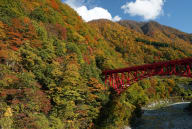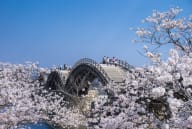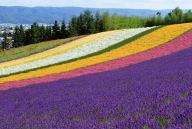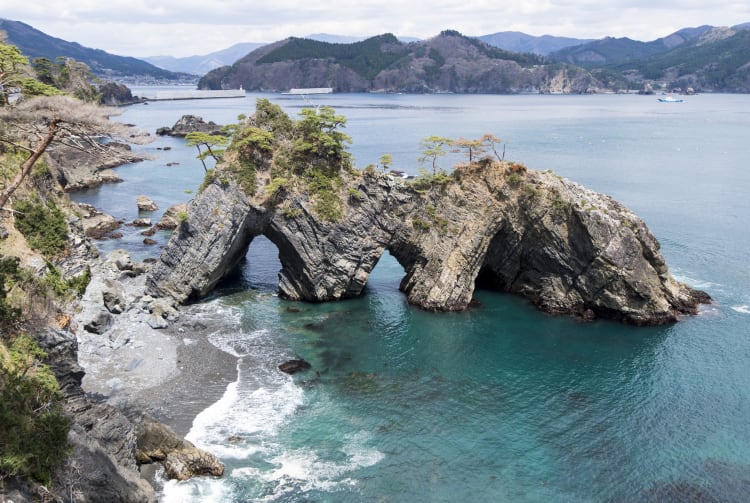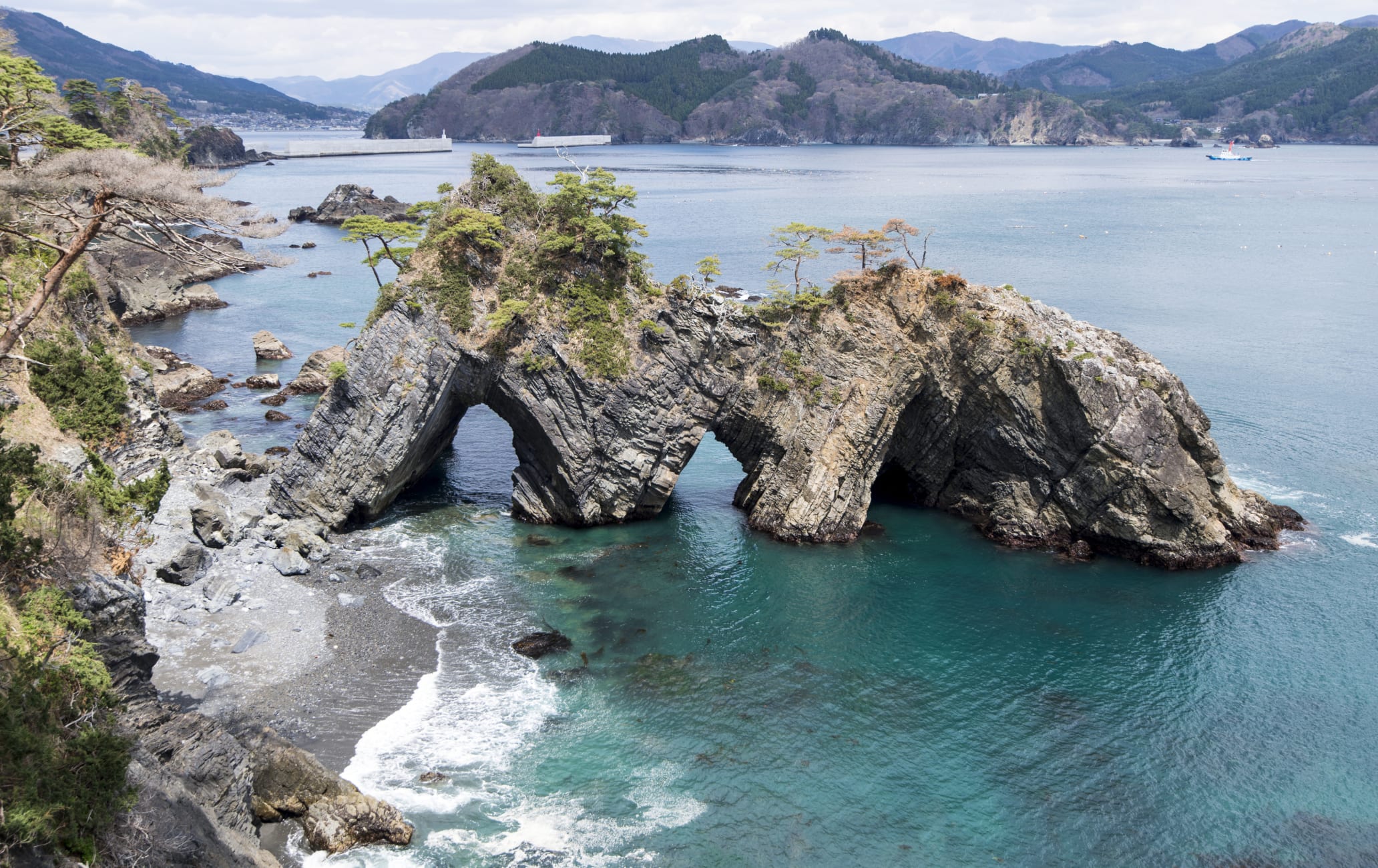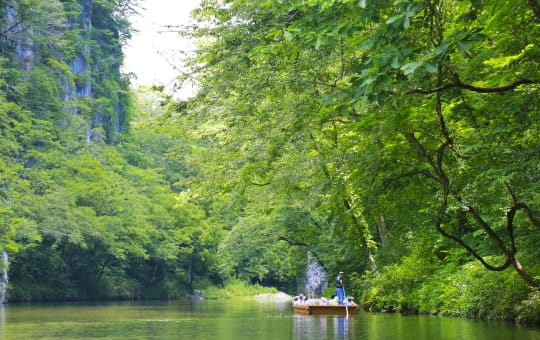Promenez-vous le long de la côte d'Iwate et admirez de magnifiques paysages
Au fil des siècles, d'innombrables vagues se sont abattues sur la côte de Goishi et ont poli les petits cailloux qui bordent ses plages, les faisant ressembler aux pièces en noir et blanc du jeu de go japonais. C'est un endroit idéal pour faire une promenade sur la plage ou admirer des formations rocheuses uniques.
À ne pas manquer
- Anatoshi-iso et Kaminari-iwa, surnommé le « rocher du tonnerre »
- L'Ipponmatsu, le seul pin d'une forêt côtière de 70 000 arbres à avoir survécu au séisme et au tsunami de 2011
Anecdotes
En 1996, Kaminari-iwa a été nommé l'un des 100 paysages sonores du Japon
La côte de Goishi fait six kilomètres de long
Comment s'y rendre
Vous pouvez accéder à la côte de Goishi en train et en bus depuis la gare d'Ichinoseki.
Prenez la ligne Shinkansen Tohoku jusqu'à la gare d'Ichinoseki et changez de train. Vous devrez alors prendre la ligne Ofunato jusqu'à Kesennuma, puis un BRT (autobus de transit rapide) pour Goishikaigan-guchi. Le trajet complet dure environ deux heures et demie. Une fois à la gare de Goishikaigan-guchi, prenez un bus local qui vous conduira sur la côte en environ 12 minutes.
Vous entendez le tonnerre ?
La côte de Goishi est marquée par plusieurs formations rocheuses uniques. La plus célèbre d'entre elles est Anatoshi-iso, une formation rocheuse qui comporte trois trous érodés. Les rochers ressemblent à des arcs flottant sur l'océan.

Un autre endroit populaire le long de la côte est Kaminari-iwa, le « rocher tonnerre ». Au fil des ans, l'océan a érodé cette formation rocheuse côtière pour former une petite grotte. Lorsque la marée s'engouffre dans l'ouverture, elle s'écrase contre les parois de la grotte, expulsant l'air à l'intérieur et provoquant une explosion caractéristique rappelant le tonnerre.
Deux façons de voir la côte de Goishi
La meilleure manière d'admirer la côte de Goishi est d'emprunter l'un de ses nombreux sentiers. Il existe des plateformes d'observation permettant de voir certains des sites les plus célèbres le long de cette côte.
Si vous n'avez pas envie de marcher, vous pouvez faire une promenade en bateau et voir les formations rocheuses depuis l'eau. Les excursions en bateau partent de Goishi Hama.
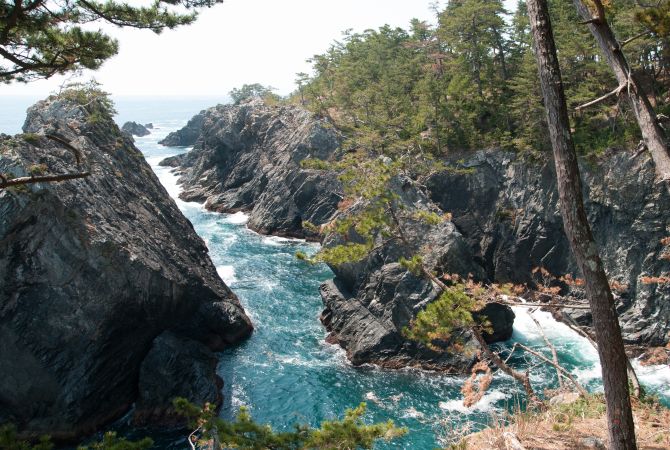
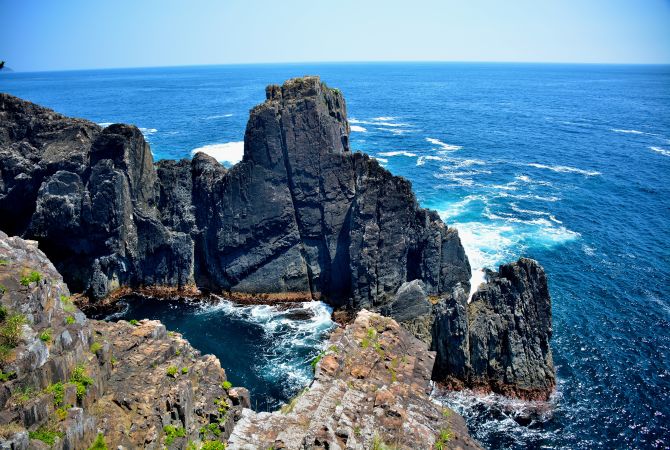
Un symbole d'espoir
Avant le tremblement de terre et le tsunami de 2011, la plage de la ville de Rikuzentakata côtoyait une forêt s'étendant sur plus d'un kilomètre et abritant quelque 70 000 pins rouges plantés pendant la période d'Edo.
Après le tsunami, il ne restait plus qu'un seul pin. Malheureusement, l'arbre est finalement mort, intoxiqué par l'eau salé. Il a été abattu en 2012, et grâce aux dons généreux provenant du monde entier, il a été préservé et ramené à son emplacement d'origine pour devenir un symbole d'espoir et de persévérance pour les habitants de Rikuzentakata.
Autres choses à faire dans la région
Vous aurez probablement besoin de deux ou trois heures pour voir toute la côte de Goishi. Dirigez-vous ensuite vers Kamaishi et la partie nord du parc Sanriku Fukko . Kamaishi possède une riche tradition en matière de rugby et est l'une des villes hôtes de la Coupe du monde de rugby 2019.




























